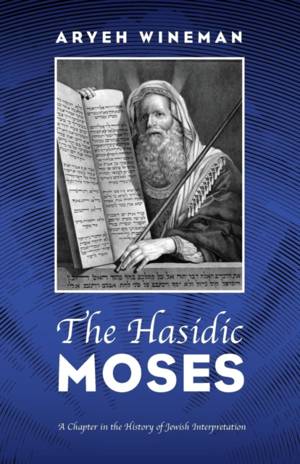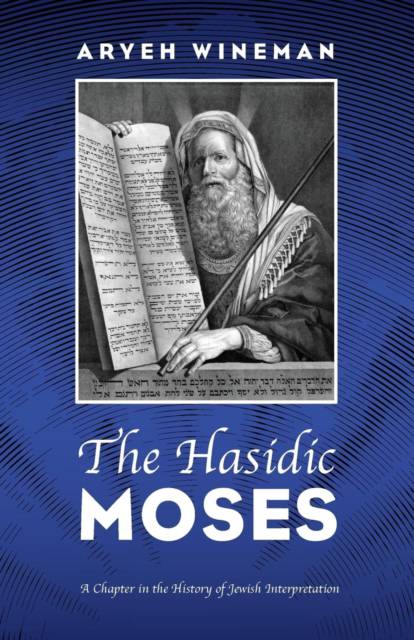
- Retrait gratuit dans votre magasin Club
- 7.000.000 titres dans notre catalogue
- Payer en toute sécurité
- Toujours un magasin près de chez vous
- Retrait gratuit dans votre magasin Club
- 7.000.000 titres dans notre catalogue
- Payer en toute sécurité
- Toujours un magasin près de chez vous
Description
In The Hasidic Moses, Aryeh Wineman invites readers to join him on a journey through various eighteenth- and nineteenth-century Hasidic texts that interpret the life of Moses. Such texts read their own accent on spirituality and innerness along with their conceptions of community and spiritual leadership into the biblical account of Moses. Wineman reveals the ways in which historical Hasidic voices interpreted both the Exodus from Egypt and the scene of Revelation at Sinai as statements concerning what occurs constantly in our lives at all times. In addition, Wineman shows how Hasidic readers embraced the idea that Moses had to die in order that his soul might return to the world in the righteous and holy ones of every generation, and that the presence of Moses actually transcends time and is present in spiritual understanding as it unfolds at any moment in any period. ""Aryeh Wineman has written a clear and accessible book that serves as a delightful entry into the world of Hasidic thought. Using the template of Hasidic interpretations of the life of Moses, he takes the reader carefully through a broad range of Hasidic works, highlighting the Hasidic resistance to the plain meaning of scripture, opting instead for their penchant for devotional and spiritually deepening readings . . . The impulse toward spiritualizing both deepens the original text of the Torah and transcends it, stimulating the reader to read the Torah as an edifying document, rather than primarily a historical, legal, or even national work."" --Joel Hecker, Reconstructionist Rabbinical College ""Aryeh Wineman's The Hasidic Moses is a triumph on every level . . . The figure of Moses is brought alive in the words of the classic Hasidic masters and is made available for a new generation of spiritual seekers hungry to find meaning in biblical models and mystical texts. The Bible tells us that no one knows where Moses is buried--but we can say that he lives robustly in Aryeh Wineman's sparking new book!"" --Nehemia Polen, Hebrew College, Newton Centre, Massachusetts ""Aryeh Wineman writes authoritatively as the scholar he is, but addresses himself--like the rabbi he also is--not to other scholars, but to readers and seekers who would like to understand. In this way he lives the humility of the teacher Moses and leads us through his writing into the depths of the Hasidic homily and parable . . . For those of us who don't have direct access to the hasidic texts he translates, his gentle and careful presentation of The Hasidic Moses is a gift from soul to soul."" --Rodger Kamenetz, author of The Jew in the Lotus and Burnt Books Aryeh Wineman has written many studies in the area of Hebrew literature and Jewish mysticism.
Spécifications
Parties prenantes
- Auteur(s) :
- Editeur:
Contenu
- Nombre de pages :
- 148
- Langue:
- Anglais
Caractéristiques
- EAN:
- 9781532651342
- Date de parution :
- 15-02-19
- Format:
- Livre broché
- Format numérique:
- Trade paperback (VS)
- Dimensions :
- 140 mm x 216 mm
- Poids :
- 176 g







